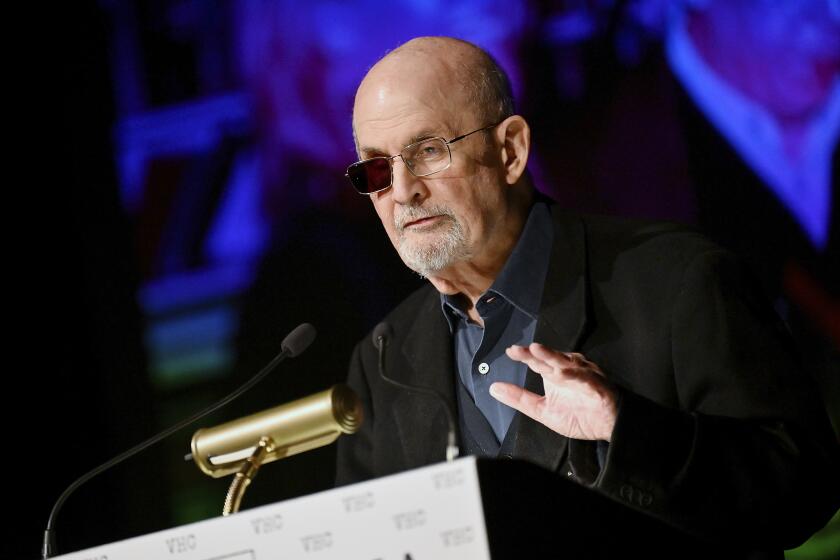A life laid bare
FOR nearly 40 years, Joan Larkin has written poems that stake out a territory of relentless self-examination, taking on love and death, family and sexuality in a voice that is unsentimental, ruthless and clear-eyed. Born in 1939, she is of a generation of women who often subjugated their truer selves to social expectation; that tension, which culminated in her coming out as a lesbian, is fundamental to her work.
Larkin is also a recovering alcoholic, and her poems about this experience are among the finest ever written on the subject -- the testimony, without cant or doctrine, of someone who has survived. For her, poetry is a form of witness; she offers no false hopes, no resolutions, except to reflect, as honestly and directly as she can manage, the complicated, at times uncontrollable, messiness of being alive.
“My Body: New and Selected Poems” (Hanging Loose Press, 150 pp., $26) gathers generous samplings from Larkin’s three previous collections, as well as a substantial array of new material. It’s a remarkable statement, tracing the evolution of a poet from her earliest efforts (“My mother gave me a bitter tongue. / My father gave me a turned back,” she begins “Rhyme of My Inheritance”) to the stunning sweep and simplicity of her current work.
“I’m older than my father when he turned / bright gold and left his body with its used-up liver / in the Faulkner Hospital, Jamaica Plain,” Larkin writes in “Afterlife.”
Best of all is the transcendent “Blackout Sonnets,” a sonnet crown (seven linked sonnets, joined by repeating first and last lines), which originally appeared in her 1986 book, “A Long Sound.” “I drank anything and slept with everyone,” she acknowledges, “and kept my mouth shut about the abortion.”
This is poetry without pity, in which despair leads not to degradation but to a kind of grace.
-- DAVID L. ULIN
More to Read
Sign up for our Book Club newsletter
Get the latest news, events and more from the Los Angeles Times Book Club, and help us get L.A. reading and talking.
You may occasionally receive promotional content from the Los Angeles Times.







